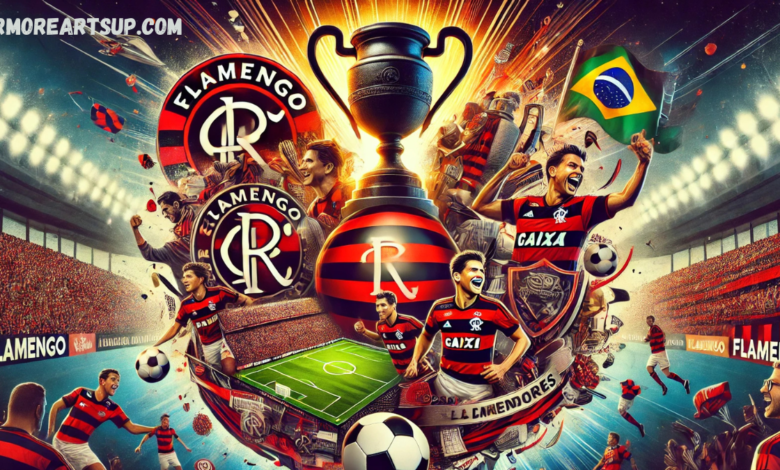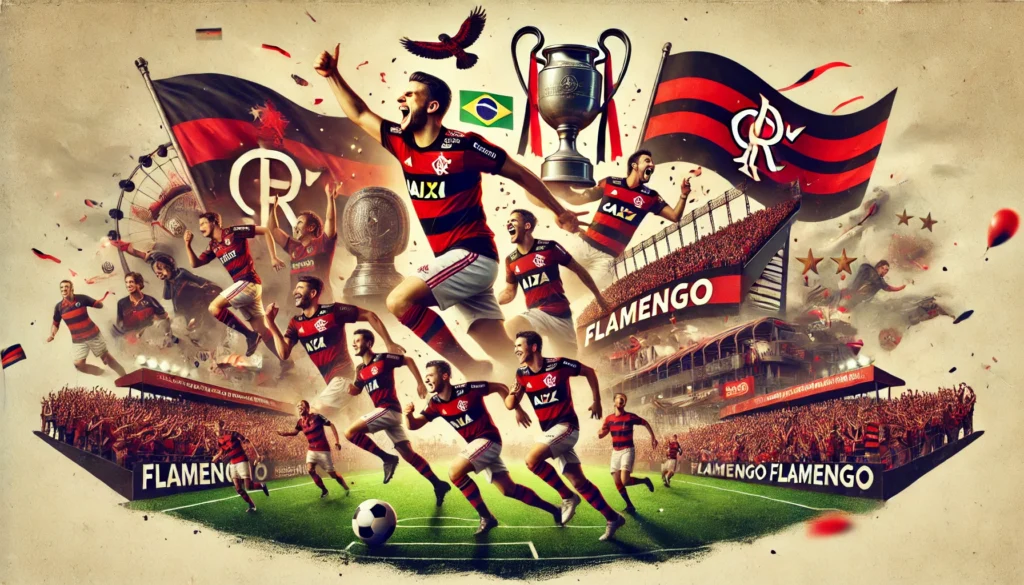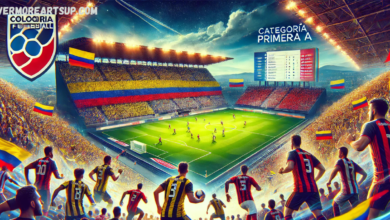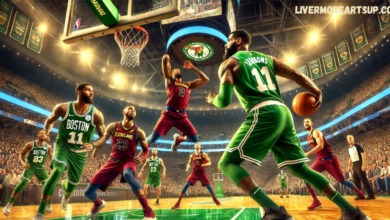Exploring classificações de Flamengo A Comprehensive Guide to the Team’s Journey

Classificações de Flamengo, one of the most iconic and beloved football clubs in Brazil, has a rich history that spans decades, filled with triumphs and challenges. Their success in both domestic and international football competitions has solidified their place as a powerhouse in South American sports. This article dives deep into the classificações de Flamengo, exploring the team’s historical performance, its current standing, and the factors that drive its ranking success. By the end of this article, you’ll gain a comprehensive understanding of Flamengo’s journey through various football classifications and what the future may hold for the club.
Introduction
classificações de Flamengo name resonates with football fans around the world, especially in Brazil, where the team has become synonymous with excellence. Founded in 1895, Flamengo’s long history is marked by numerous achievements in both domestic and international football. The club’s remarkable success in Brazilian football and its consistent presence in prestigious international tournaments like the Copa Libertadores and FIFA Club World Cup have cemented its reputation as one of the giants of the sport.
Classifications in football are essential to understanding a team’s standing within the sport. They represent not only a team’s performance in various competitions but also its broader impact on the football world. For Flamengo, rankings in these competitions reflect their hard work, talent, and the passion of their fans. This article explores classificações de Flamengo, from their early days to their current standing as one of the best football clubs in the world. We will also look at their future prospects, based on their current performance and strategic goals.
Flamengo’s Historical Classifications
classificações de Flamengo rise to prominence in Brazilian football can be traced back to their early years in the 20th century. Initially playing in regional tournaments, Flamengo quickly became a force to be reckoned with in the Campeonato Carioca, the state championship of Rio de Janeiro. By the mid-1900s, Flamengo had already won multiple Carioca titles, establishing themselves as one of the dominant teams in Rio de Janeiro and later in Brazil.
The club’s breakthrough on the national stage came in the 1960s and 1970s. Flamengo won their first Campeonato Brasileiro title in 1980, marking the beginning of a golden era for the club. They would go on to win multiple Brazilian league titles, solidifying their place as one of the most successful teams in the country. Their historical success is also highlighted by their dominance in the Copa do Brasil and their consistent performances in international competitions. Flamengo’s ability to maintain a strong position in Brazilian football over the years has contributed significantly to their high rankings and continued success.
In terms of international classificações de Flamengo made their mark in the Copa Libertadores, South America’s premier club competition. Their victory in the 1981 edition, led by the legendary Zico, remains one of the club’s most iconic achievements. This victory, along with subsequent triumphs, helped to elevate Flamengo’s profile on the global stage, drawing attention from fans and teams worldwide. Over the years, Flamengo has consistently performed well in international competitions, showcasing their dominance not only in Brazil but also in South America.
Flamengo in International Competitions
Flamengo’s journey in international competitions, particularly the Copa Libertadores, has been marked by both highs and lows. However, their overall performance in these tournaments has helped the club secure a solid ranking among South America’s elite teams. Flamengo first won the Copa Libertadores in 1981, and this victory became a defining moment in the club’s history. With the legendary Zico at the helm, Flamengo defeated Cobreloa of Chile to claim the prestigious title, which catapulted them into the global spotlight.
In more recent years, Flamengo has enjoyed continued success in the Copa Libertadores, claiming their second title in 2019. The 2019 victory was particularly memorable, as Flamengo made a dramatic comeback in the final against River Plate of Argentina. This victory not only secured Flamengo’s place in the annals of South American football history but also contributed to their high rankings in the international football scene. Flamengo’s performance in the tournament continues to draw admiration from fans around the world, as they maintain a competitive edge in this prestigious competition.
Flamengo’s success in the FIFA Club World Cup also deserves attention. Their appearance in the tournament has been a source of pride for the club, as they continue to compete at the highest level against some of the best clubs in the world. Their strong performances in these international tournaments have boosted their reputation globally, showcasing Flamengo as a club with the ability to compete against the best teams from Europe, Asia, and beyond.
Flamengo’s Current Classifications and Recent Performance

In recent years, Flamengo’s performance in Brazilian football has been nothing short of impressive. Under the guidance of various coaches and with a roster that includes some of the best players in the country, Flamengo has continued to dominate the Brazilian Série A. The club’s recent victories in the Brazilian league, particularly their success in 2019 and 2020, have reinforced their position as one of the top teams in Brazil.
The current Flamengo squad boasts a mix of experienced players and emerging talents, which has allowed the team to stay competitive in both domestic and international competitions. The presence of key figures such as Gabriel Barbosa (Gabigol) and Giorgian De Arrascaeta, along with the tactical expertise of coach Jorge Jesus, has helped Flamengo maintain its ranking among Brazil’s elite clubs. Flamengo’s attacking prowess, combined with solid defensive performances, has made them a formidable force in the Brazilian league.
Flamengo’s recent success also extends to their participation in international tournaments. Their performances in the Copa Libertadores and FIFA Club World Cup have kept them in the spotlight. The club continues to secure top finishes in the Brazilian Série A, which helps maintain their strong classification and reputation. With a well-balanced squad and a clear focus on success, Flamengo is positioned to remain a key player in both Brazilian and international football for years to come.
Flamengo’s Ranking Metrics and What They Mean for the Club’s Future
Understanding Flamengo’s classification metrics is crucial to gauging their future potential. Rankings in competitions like the Copa Libertadores, Copa Sudamericana, and Brazilian Série A are determined by a variety of factors, including match performance, goals scored, goals conceded, and overall consistency in domestic and international play. For Flamengo, these rankings are not only a reflection of their current form but also an indicator of their ability to attract talent, sponsors, and fans worldwide.
As Flamengo continues to perform well in both domestic and international competitions, their rankings will likely remain high. Their position in the Brazilian Série A and Copa Libertadores, for example, has a significant impact on the club’s ability to recruit top talent and secure sponsorship deals. Moreover, Flamengo’s consistent performance in these tournaments strengthens their global fanbase, which translates to greater visibility and influence in the football world.
Looking ahead, Flamengo’s future success will depend on several factors, including player development, strategic investments, and maintaining a competitive edge against other top teams in Brazil and South America. The club’s high rankings are a testament to their continued dominance, but staying at the top will require consistent effort and performance. As Flamengo looks to expand their legacy, their future classifications will be crucial in defining their status in the global football arena.
Conclusion
Flamengo’s classifications, both historically and in the present day, provide a clear picture of the club’s enduring success and its prominent place in Brazilian and international football. From their early dominance in regional competitions to their rise to international stardom, Flamengo has continually maintained a competitive edge. Their high rankings in tournaments like the Copa Libertadores and Brazilian Série A reflect not only their talent but also the club’s deep-rooted culture of excellence.
As Flamengo looks to the future, their classificações de Flamengo will be shaped by their ability to adapt to changing football dynamics and continue attracting top talent. With a passionate fanbase, strong team leadership, and a commitment to success, Flamengo is well-positioned to maintain its place among the elite clubs of Brazil and South America for years to come.
Frequently Asked Questions (FAQs)
What is the history of Flamengo’s success in the Campeonato Carioca?
Flamengo has been a dominant force in the Campeonato Carioca, winning numerous titles since its early years. Their performances in the competition helped establish their prominence in Brazilian football.
How many times has Flamengo won the Copa Libertadores?
Flamengo has won the Copa Libertadores twice, first in 1981 and again in 2019, marking their success on both the domestic and international stage.
What are some of Flamengo’s most famous matches in international competitions?
Flamengo’s 1981 Copa Libertadores final against Cobreloa and their dramatic 2019 victory over River Plate in the Copa Libertadores are among their most memorable international matches.
How does Flamengo’s current performance compare to other Brazilian clubs?
Flamengo remains one of the top-performing clubs in Brazil, consistently ranking at the top of the Brazilian Série A and competing successfully in international competitions.
What are the factors that influence Flamengo’s rankings in Brazilian football?
Factors include match performance, goals scored, goals conceded, and overall consistency in the domestic and international competitions.
You May Also Read: https://livermoreartsup.com/wimbledon-scores/




